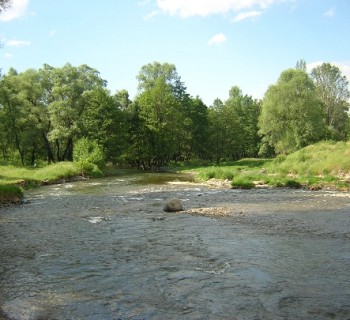Bulgarian dishes
Bulgarian cuisine has adopted the best traditions of Byzantine cooking. Her recipes are known to many Russian housewives. Bulgarian dishes are distinguished by their originality. Locals try to preserve their culinary traditions, despite the influence of other peoples.
Main dishes
Bulgarian cuisine is based on vegetable dishes. A wide variety of vegetables are popular in this country: carrots, cucumbers, potatoes, zucchini, different types of cabbage, eggplants, etc. Vegetables are consumed in any form. They are eaten raw, fried, boiled, pickled, stewed and stuffed. Vegetables are an indispensable component of meat dishes.
The national cuisine is full of recipes that are known all over the world. For example, Bulgarians were the first to start preparing popular yoghurt. Dairy products are very common in Bulgaria. They are considered staple foods and are added to many dishes. Various types of cheeses are also popular among the local population. The most popular are soft cheese, kashkaval, tukmanik, etc..
The meat is often brought to readiness along with vegetables, serving in clay pots. Basically, local housewives make three meat dishes: kawarma in pots (meat, sweet bell peppers, onions, red wine), guvech (stew, potatoes, garlic, tomatoes and other vegetables) and moussaka (casserole made from potatoes and minced meat) ... Sach is also popular - meat and all kinds of vegetables are fried in a pan.
Culinary traditions
Bulgarians start any meal with salad. Shopska salad is the national Bulgarian dish. It is made from cucumbers, sweet baked peppers, feta cheese, onions, herbs. There are always hot and cold snacks on the table. For their preparation they take stew and jerky meat, mushrooms, fried offal, sausage, etc. Each village has its own recipes for making soups, which are called chorba. The first place among them is occupied by bean chowder with the addition of fried meatballs and boiled-smoked sausages..
For the holidays, a stew of veal tripe is prepared. Of the cold soups, the tarator is the most popular. It is made from finely chopped cucumbers, walnuts, garlic, dill, and sour milk. The peculiarity of the Bulgarian cuisine is the unusual way of cooking the ingredients. The products are thoroughly steamed over low heat for an hour. In this case, all components are heat-treated at the same time. This is how Bulgarians prepare second courses and soups. The sweet dishes of Bulgaria are also varied. Delicious cakes, Viennese pastries, oriental sweets (baklava, tulumba) are made here.


